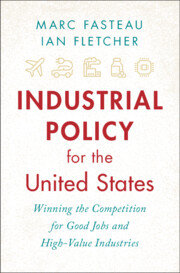In this paper, we place the Trans-Atlantic Trade and Investment Partnership (TTIP) into broader geo-political and economic context given the current Trump Administration's withdrawal from the Trans Pacific Partnership (TPP) and the loss of momentum for TTIP. Both TPP and TTIP sought to provide key tactical solutions to the particular trade/investment problems participating states faced. For the U.S. government, these free trade agreements also represented a geo-political undertaking, an attempt to once again set trade rules in light of deadlock in the WTO. Ultimately, the inability of the Obama Administration to successfully complete negotiations for and ratification of these two deals does not alter the underlying motivations that led to them in the first place. The stagnation of these deals, however, has intensified geo-economic and geo-strategic concerns: opening the door to rival articulations of trade governance and undermining U.S. credibility with its partners.

